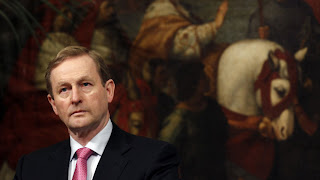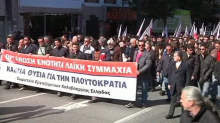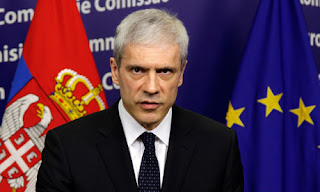KUWAIT - In this ancient crossroads of sand and sea, a fascinating mixture coexists of the 21st century and the timeless.
Best known in the United States as the country liberated from Saddam Hussein by US and coalition troops in the 1991 Gulf War, and later as the staging point for the 2003 invasion of Iraq, this postage-stamp-size emirate on the Persian Gulf has undergone a dizzying building boom.
Dazzling, futuristic office towers dot the downtown and waterfront boulevards of this sprawling city, while the latest Mercedes-Benzes and BMWs roam its streets in weaving, near-reckless fashion - usually with one cellphone, and sometimes two, attached to the drivers’ ears.
But on the fringes, on the flat, horizon-reaching sands that extend toward Saudi Arabia to the south and Iraq to the north, migrating Bedouins still set up tents beside teeming, high-speed roadways that resemble US interstate highways. Sometimes, a satellite dish is positioned beside the tent.
It’s a picture that combines the complexities of the modern Arab state, one that embraces a modernistic, oil-financed march toward the future while managing to nurture the links to its ancient culture and migrating past.
Walk the streets of downtown Kuwait City, and the traditional market, the crowded souk, offers hand-crafted Persian rugs and Kashmir shawls in a shadowy warren of narrow alleys. Heads turn to follow you as your eyes, unaccustomed to the kaleidoscope of the souk, try to absorb the bright colors, rich fabrics, dangling lightbulbs, and beckoning vendors who stand nearly motionless inside each narrow cubbyhole of commerce.
Almost immediately, my attention was seized by a booth with dozens of Indian shawls. My guide frowned slightly as I fingered the light, smooth merchandise hanging from pins and racks along its walls. He tugged on my arm: “There is a better shop down here, a better price.’’
There, a vendor unrolled rug after rug until I found just the right combinaton of color and texture for a price that, even after a few low-key rounds of gestures and bargaining, seemed like a steal. My guide was right.
Western tourists are a relative rarity; indeed, Kuwait has only about 90,000 vacationers per year. But they are not made to feel self-conscious. Whether walking along the outdoor promenade at the upscale, yacht-filled Marina Mall, or strolling among the locals in the souk, the ambience is laid-back and almost cosmopolitan. Smiling greetings and nods of welcome are common; so are the Paris-bought suits and high-three-figure sunglasses.
“There are a lot of Americans at the restaurants and malls, and the locals have much respect for them,’’ said Jenny Aguilar, guest relations manager at the Hilton Kuwait Resort, a luxury hotel built on a wide beach on the gulf. “During the [1991] war, it was the Americans who were here to guard the country from the Iraqis.’’
Many Americans come for business and stay for extended periods, Aguilar said, and their families often follow. As such, top-flight hotels like the Hilton offer an almost Western experience with rows of designer shops, well-equipped health clubs, and expansive pools.
Indeed, in December, a hallway at the Hilton featured a towering Christmas tree, a nightly concert of carols, and even a Santa Claus who mugged for photos with guests wielding smartphones and cameras. “Santa!’’ I said one night in startled recognition. St. Nicholas grinned - he obviously knew his name - but could not converse in English.
One glaring difference at the hotels - a reminder that Kuwait is a Muslim country - is the absence of alcohol. The restaurants in this country feature faux-cocktail bars, where drinks are spiked with fruit juice instead of the hard stuff. “Mixed with mango or pineapple?’’ my waitress asked me one night. My first instinct was to reply, “Mango or pineapple with what?’’ but I fought the urge. As I discovered, those tiny umbrellas in the concoctions are only a playful, winking nod to a forbidden indulgence.
Another reminder is the varying degree of traditional Arab dress. Although many young Kuwaitis of both sexes dress stylishly in expensive, Western-style clothing, many older men and women adhere to centuries-old concepts of proper public appearance. At the Hilton, a Muslim woman swam with her son while wearing a full-length body covering and another for her head.
Kuwait City was settled about 300 years ago and grew quickly, serving as a transit point for trade that linked India, the Middle East, and Europe. The British profited from Kuwait’s strategic location, where shipments of textiles, spices, and other goods crossed on their journey to and from India.
At the dawn of the 20th century, the British agreed to provide Kuwait with naval protection as a curb against the ambitions of the Ottoman Empire. Then, in 1936, the first oil wells were drilled. Kuwait gained independence in 1961.
Today, the pace of change is accelerating further. Along the highways in this metropolitan area of 2.4 million people, the familiar facades of Burger King, McDonald’s, and Pizza Hut are a sign of sometimes jarring change. Fast food, American-style, has come to Kuwait with a muscular visibility that vies for space with the pastel housing and apartment complexes that are mushrooming at astonishing speed out of what was empty desert only a decade or two ago.
The reason, of course, is oil - and lots of it. Ten percent of the world’s reserves are estimated to lie underneath the sands that bake in temperatures over 120 degrees Fahrenheit in July and August. The result is that Kuwaitis are a wealthy people, whose routine services - the province of taxi drivers, hotel staff, and laborers - are performed primarily by non-citizen immigrants from places such as the Philippines and Pakistan.
After a short time here, most visitors will see and sense this division, one of an unapologetic, two-tier society whose yawning gap seems unbridgeable. As such, Kuwait is vigilant about who enters the country and how long they stay. The lack of proper visa credentials - needed both for entering the country and leaving it - can lead to detention.
Entrance visas can be obtained upon arrival at Kuwait International Airport, where waits of an hour or more at a visa-control station are needed to gain approval to enter. Similarly, approval must be obtained to leave the country, where customs officials scrupulously ensure that travelers have not overstayed their welcome.
Once out the doors of the airport, getting around Kuwait is relatively easy. Taxis are everywhere, the drivers usually speak English, and rental cars are available. However, only international driver’s licenses are allowed for foreigners; a US license is not accepted.
Americans who want to take the wheel might find the roadways slightly terrifying. Traffic routinely weaves in and out at high speed, police do not appear to patrol regularly, and I saw several serious crashes on the major highways into and out of Kuwait City - at least one of which had what appeared to be a fatality on the road beside his car.
A stress-free way to soak up the sights is to ask the hotel concierge for a taxi driver who, for a reasonable fee, can act as both driver and guide. That way, tourists can visit multiple locations within a day, stroll and shop at their leisure, and enjoy the convenience of knowing that a ride to the next destination awaits them whenever they choose.
Visitors can nearly always count on dry weather; the country averages only 22 days with rain per year. Dust storms can occur at any time, but most often during the stifling summer. The most comfortable months are from November through March, when average high temperatures oscillate between 67 in January to the low 80s in November and March.
Without worrying about heat exhaustion, tourists will find that “Kuwait has a lot to offer,’’ said Aguilar.
Those offerings range from a panoramic view atop the two soaring Kuwait Towers, which reach 600 feet high; to ancient artifacts at the National Museum; to a day trip to one of Kuwait’s islands. There, a fully crewed dhow, or traditional Arab sailing vessel, can be hired to ply the gulf. The emirate also hosts pearl-diving festivals.
Shopping is a major pastime, and the city is dotted with high-end malls. Nearly everything a shopper can find on Newbury Street in Boston can be found here. Fine restaurants are also an option in the malls and hotels, where the cuisine spans a wide and interesting range from Middle Eastern to Chinese to European. At The Teatro, a restaurant on the gulf, the food is prepared at individual stations, elegantly presented, and cooked to order whether the choice is shrimp, steak, chicken, pasta, or any other of dozens of options. The service is impeccable, the staff attentive but not obsequious, and even the acoustic guitar player - from Japan - as cool and mellow as one might expect in an upscale US dinner club.
For tourists who crave a sampling of the traditional, a walk through the souk is a must. Although a first-time visitor can navigate the maze with only a few wrong turns, using a guide - that daylong taxi driver, possibly - will help find the best stalls, the best deals, and the best experience.
While walking the souk, ask to be taken to the nearby fish market, with its glistening mounds of fish, fresh from the gulf. A large adjoining room, rich with the smell of the sea, serves as a place for the fishmongers to kneel and pray.
Kuwait is a safe place, but common-sense precautions should be taken. Avoid dark places, stay on the major boulevards at night, and be respectful toward the people and their lifestyle, which is more relaxed than in strictly religious Saudi Arabia but remains unmistakably and proudly Muslim.
Millions of US service members, contractors, and business people have passed through here in the last two decades. Now, with the Iraq war over and the US presence winding down in Afghanistan, Kuwait is hoping Americans find another reason to visit.







 2:04 PM
2:04 PM







